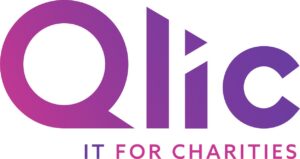Online collaboration is essential for all organisations in the current digital world. By harnessing the power of online collaboration, nonprofits can break geographical barriers, streamline communication, and adopt continuous innovation.
The onprofit sector faces unique challenges, but by using online collaboration tools, your organisation can address these hurdles by improving resource management and enhancing communication.
This blog explores the nuances of nonprofit online collaboration best practices. We’ll explore the benefits of online collaboration, the common challenges and best practices that can elevate the efficiency of working remotely while maintaining focus on your charity’s mission.
Understanding Nonprofit Online Collaboration
Nonprofit online collaboration refers to the use of digital platforms and tools that facilitate communication, project management, and resource sharing among team members regardless of their locations.
The importance of online collaboration should not be understated. With organisations varying in size and having remote and virtual teams, collaboration tools are an invaluable part of modern operations. This flexibility provided is vital for roles such as fundraisers, who may need to coordinate events across different locations and time zones.
Online collaboration seamlessly integrates various functions and roles, from grant writing and campaign management to community outreach and volunteer coordination. Through fostering an environment where information and resources are readily accessible, nonprofits can enhance and increase engagement and ultimately achieve their mission more effectively.

Benefits of Online Collaboration for Nonprofits
Online collaboration has a variety of benefits that can transform the operational efficiency and outreach capabilities of nonprofits. The following benefits will explain how online collaboration can enhance organisational efficiency, boost stakeholder engagement, and improve communication.
- Enhanced efficiency
- Increased stakeholder engagement
- Improved communication
Enhanced Efficiency
By integrating online collaboration tools into everyday work, nonprofits can significantly streamline their workflows and automate tasks. The use of project management tools can aid in efficiently tracking progress, managing deadlines, and allocating resources. This helps to speed up project completion and enhance the team’s overall productivity.
Increased Stakeholder Engagement
Online collaboration tools play a crucial role in increased stakeholder engagement. The tools help produce regular updates to satisfy board members and maintain transparency which helps retain trust with donors, volunteers, and community members. This increased engagement is crucial for maintaining long-term relationships and fostering community around a nonprofit’s mission.
Improved Communication
Effective communication is the foundation of any successful nonprofit, and with online collaboration tools, you can achieve this. Collaboration enables seamless, real-time communication among team members, volunteers, and stakeholders. With centralised communication channels, such as chats, video conferencing, and forums, all parties can stay well-informed and aligned with the organisation’s mission.
Challenges of Online Collaboration for Nonprofits
Online collaboration may also present several challenges for your nonprofit teams that can hinder their effectiveness. Understanding and addressing the following barriers is crucial for nonprofits to leverage the full potential of digital tools.
- Technological Barriers
- Change resistance
- Security and Privacy Concerns
Technological Barriers
Technological barriers are one of the primary hurdles faced by nonprofits when adopting online collaboration tools. Said barriers can sometimes arise from insufficient IT infrastructure as well as the challenge of finding a sufficient budget for upgrading systems or new technologies. Making sure your team also has some knowledge of technology and the upcoming ones is also crucial. Overcoming these barriers involves investing in technology as well as training for your staff, ensuring everyone is equipped with the necessary skills to use new technology effectively.
Change Resistance
Resistance to change is a common challenge in any sector undergoing digital transformation. The introduction of new online collaboration tools can sometimes cause scepticism as it requires changing the current processes that your team is used to. It’s essential to involve all levels of the organisation in the digital transition and educate stakeholders onwhy digital transformation is important for charities.
Security and Privacy Concerns
Another challenge of online collaboration lies in choosing a tool that also offers robust security measures to protect the sensitive data your charity holds. Training your staff on the correct way to handle and manage sensitive data for data protection is also key. This involves adhering to cyber security best practices such as implementing strong passwords, using secure connections, and being vigilant when it comes to cyber threats. Regular audits and updates to security protocols are essential to maintain the confidentiality of sensitive information. Your organisation must also comply with data management best practices, protection laws, and regulations to safeguard data.
Key Best Practices for Nonprofit Online Collaboration
By adhering to the following online collaboration best practices, your nonprofit organisation can maximise the benefits and mitigate the challenges associated with online collaboration. Here are the main best practices that can transform the way nonprofits collaborate online:
- Choose the Right Collaboration Tools
- Establish Clear Communication Channels
- Promote Transparent Document Collaboration
- Foster a Collaborative Culture with Trust and Accountability
- Set Clear Goals and Objectives
- Prioritise Security and Privacy
- Provide Training and Support
- Evaluate and Adjust Collaboration Practices and Processes
Choose the Right Collaboration Tools
Selecting the right collaboration tools is crucial for nonprofits. Popular tools such as Slack, Microsoft Teams, and Asana offer various features tailored to different organisational needs. Find out more about the benefits of Microsoft Teams, as well as the top collaboration tools for nonprofits.
Establish Clear Communication Channels
It is essential to have structured communication channels to ensure effective communication between your team. Remote working with Microsoft Teams is made easy with real-time communication through live chat, project updates or virtual team meetings.
Promote Transparent Document Collaboration
Using platforms that facilitate transparent document collaboration, such as SharePoint and Google Workspace, ensures seamless collaboration among team membersregardless of location. These tools enable real-time document editing and version control.
Foster a Collaborative Culture with Trust and Accountability
Creating a culture that values collaboration, inclusivity, and accountability is vital. Encouraging open communication and trust among team members helps build a supportive environment that enhances collective efforts. It’s also important to encourage virtual collaboration across different functions.
Set Clear Goals and Objectives
Defining clear goals for your organisation helps guide the team’s collaborative efforts. Using project management software that integrates these goals into daily workflows can be highly beneficial for your team.
Prioritise Security and Privacy
Security should be at the forefront when looking into online collaboration tools and is also an essential best practice for remote working. Look out for additional security features designed for secure collaboration, such as Sharepoint Groups. Nonprofits must prioritise protecting their data against cyber criminals. For more insights on why cyber security is crucial for nonprofits and the latest trends, see why cybersecurity is important and top cybersecurity trends.
Provide Training and Support
Ongoing training and support for your staff is essential for finding confidence and understanding when using online collaboration tools. This enhances efficiency and ensures that the tools are used to their maximum potential.
Evaluate and Adjust Collaboration Practices and Processes
It is important to review and refine collaboration practices regularly. Regular catch-ups with your team can help address any issues promptly and adjust tools or processes to better suit the evolving needs of the organisation.

Closing Thoughts on Nonprofit Online Collaboration Best Practices
Embracing nonprofit online collaboration offers an impressive tool to help enhance your operation, engage stakeholders, and communicate more effectively throughout the team.
By choosing the right online collaboration tools for your organisation. You’re able to establish clear communication, set goals, prioritise the security of your sensitive information and data and provide training to overcome the inherent challenges of digital collaboration.
Follow these best practices to transform the way your nonprofit operates. These practices will help ensure you overcome barriers and capitalise on the opportunities that digital collaboration presents.
GET IN TOUCH
Would you like to learn more about online collaboration best practices and how to facilitate them at your charity? Book your FREE Consultation with our IT experts at Qlic by clicking the button below.






